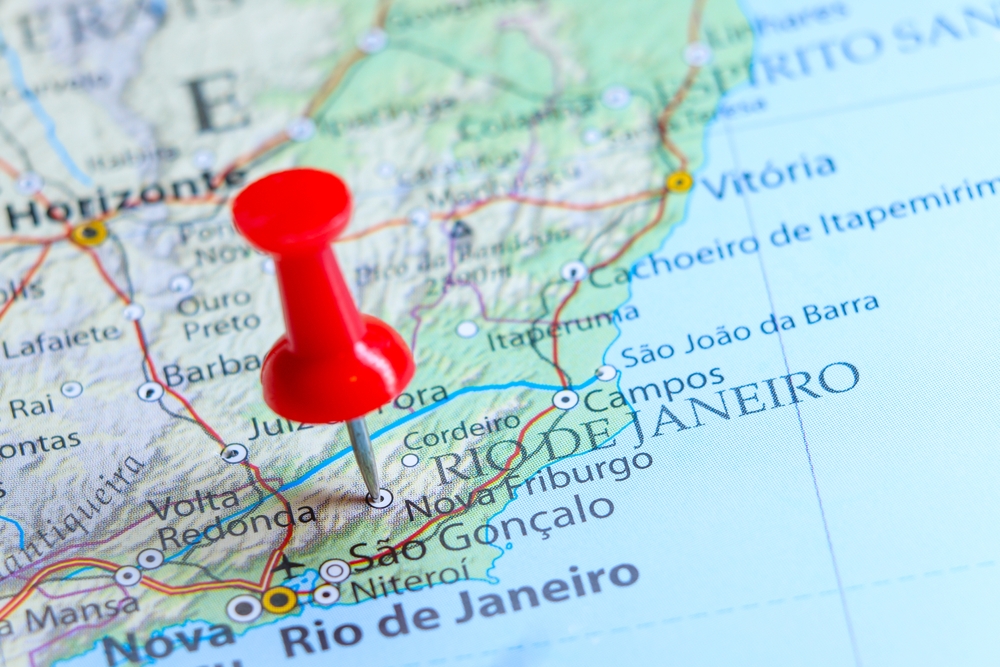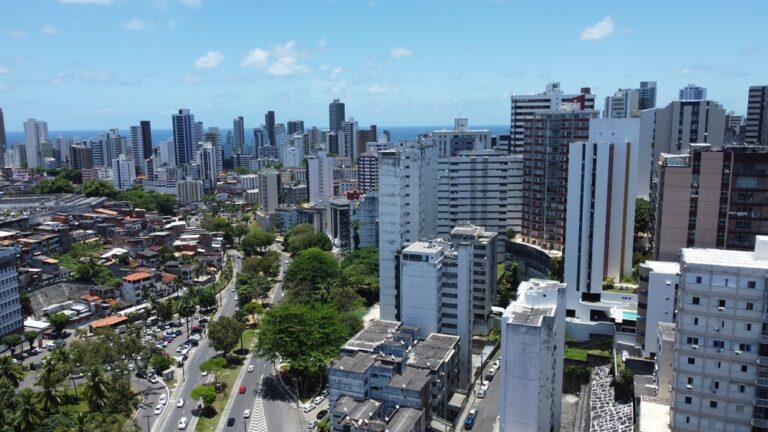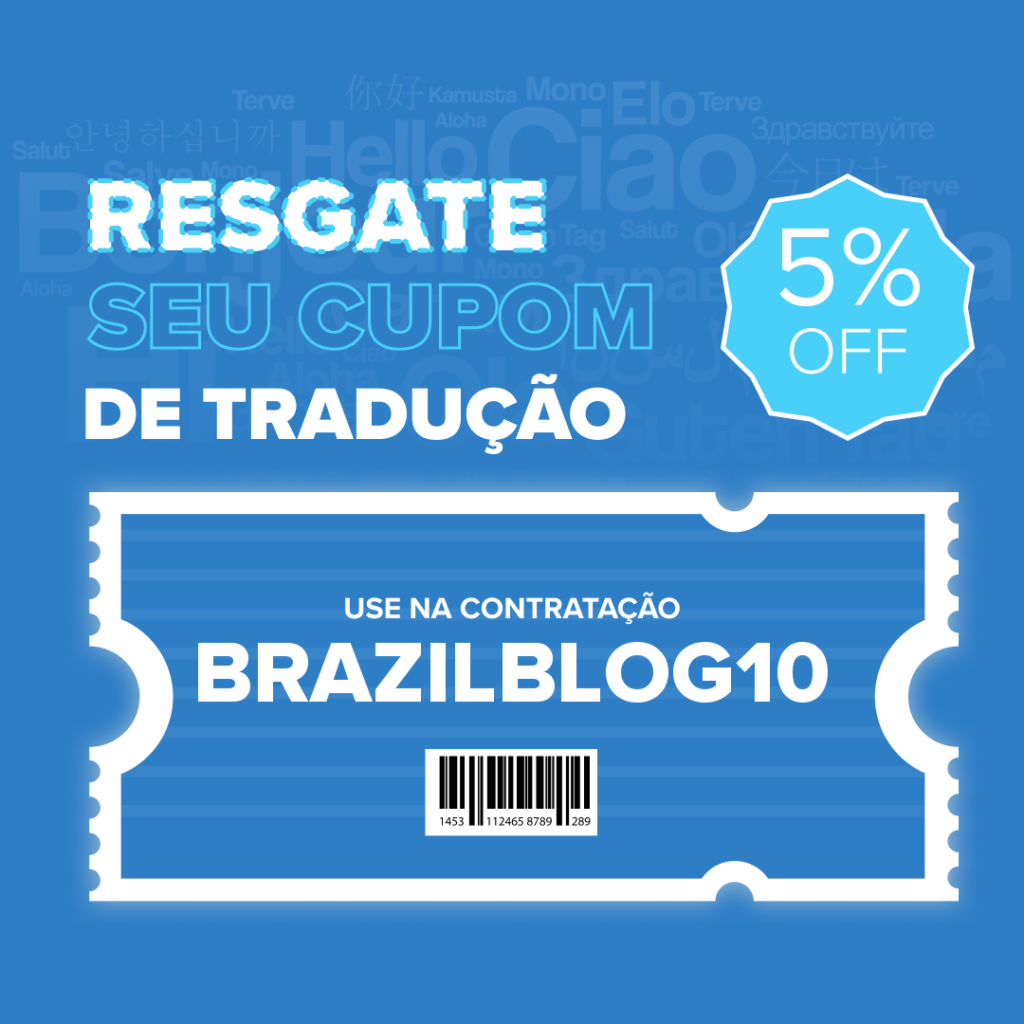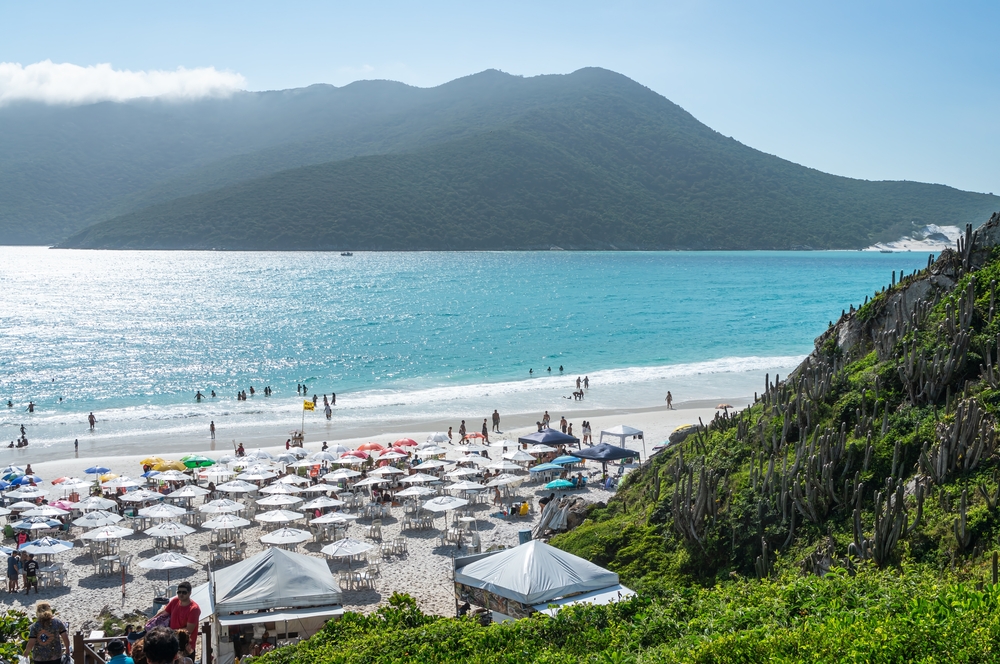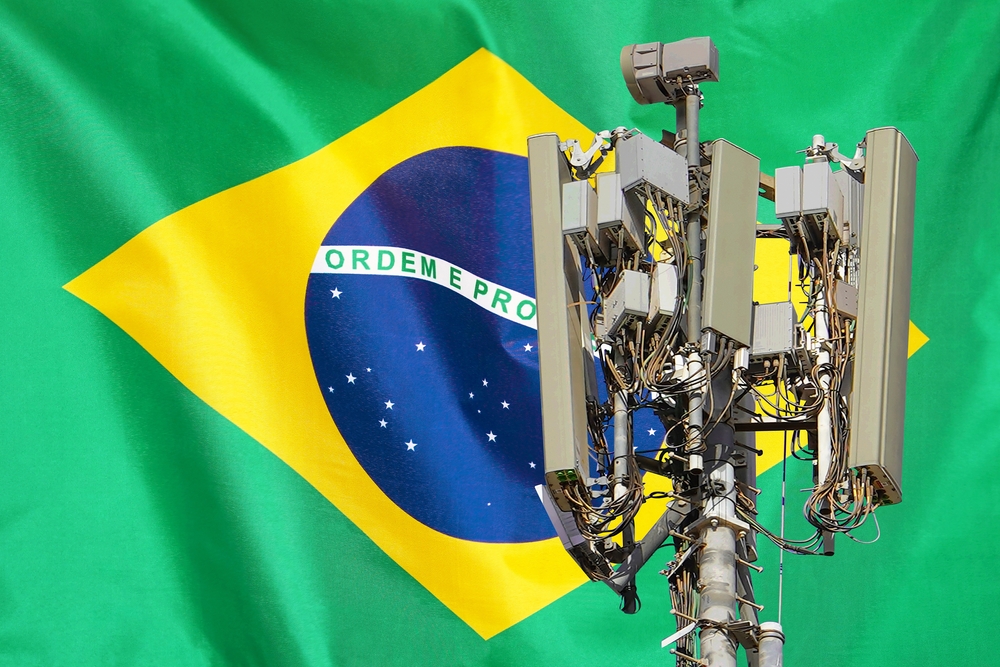Table of Content
ToggleIntroduction
Nova Friburgo is a charming city nestled in the mountains of southeastern Brazil. Located 136 km from Rio de Janeiro, this picturesque town offers visitors a unique blend of Brazilian and European cultures. Nova Friburgo’s pleasant climate, with average temperatures ranging from 10°C to 30°C, makes it an ideal destination for those seeking a cooler escape from Brazil’s tropical heat.
The city’s history dates back to the early 19th century when Swiss settlers founded it. Today, Nova Friburgo is known for its European-style architecture, including the beautiful Anchieta College and the Chapel of Santo Antônio. These historic buildings give the city a distinctive charm that sets it apart from other Brazilian destinations.
Visitors to Nova Friburgo can enjoy a variety of activities, from hiking in the surrounding mountains to exploring the city’s cultural attractions. The Mirante do Inferno Mountain offers breathtaking views for those who enjoy outdoor adventures. For a more relaxed experience, the city’s squares and parks provide perfect spots for leisurely strolls and people-watching.
Key Takeaways
- Nova Friburgo offers a unique blend of Brazilian and European cultures in a mountainous setting.
- The city’s mild climate and natural beauty make it an attractive destination for tourists.
- Nova Friburgo boasts historic architecture and outdoor activities for visitors to enjoy.
Geography of Nova Friburgo
Nova Friburgo sits in a mountainous region of Brazil’s Rio de Janeiro state. Its unique geography shapes the local climate and supports diverse ecosystems. The city’s high elevation and varied terrain create a distinct landscape.
Climate and Ecosystem
Nova Friburgo has a cooler climate than many nearby areas due to its high altitude. The city sits 846 meters (2,776 feet) above sea level. This elevation leads to milder temperatures year-round.
The area around Nova Friburgo is rich in natural beauty. Lush forests cover much of the surrounding mountains. These woods are home to many plant and animal species.
Several stunning waterfalls dot the landscape near the city. These natural wonders attract tourists and nature lovers. The forests and waterways create habitats for local wildlife.
Topography
Nova Friburgo is nestled in the Serra dos Órgãos mountain range. This location gives the city its hilly terrain and breathtaking views. Steep slopes and valleys characterize much of the area.
The city spreads across this uneven terrain. Buildings and streets adapt to the mountainous landscape. Many homes and businesses perch on hillsides or in small valleys.
Rivers and streams flow through Nova Friburgo. The Rio Grande is a major waterway in the city. These water sources have shaped the local topography over time, carving out valleys and creating natural boundaries.
History of Nova Friburgo
Nova Friburgo’s history is marked by Swiss settlement, economic growth, and rich cultural heritage. The city’s past reveals a story of immigration, industrial development, and the blending of European and Brazilian traditions.
Founding and Settlement
Nova Friburgo was founded in 1818 by Swiss immigrants seeking a new life in Brazil. King João VI of Portugal encouraged this settlement as part of a program to establish agricultural colonies in the country.
The Swiss settlers arrived in 1819, facing initial hardships in the mountainous terrain. They named the colony Nova Friburgo after their home canton of Fribourg in Switzerland.
Over time, immigrants from other European countries, including Germany and Italy, also settled in the area. This mix of cultures shaped Nova Friburgo’s unique identity.
Economic Development
Nova Friburgo’s economy evolved from agriculture to industry over the years. Initially, settlers focused on farming, growing crops suited to the region’s climate.
In the 19th century, the city became a hub for textile production. This shift marked a significant turning point in Nova Friburgo’s economic history.
The textile industry brought jobs and wealth to the area. It attracted more immigrants and spurred urban development.
Today, Nova Friburgo’s economy is diverse. It includes industries such as clothing manufacturing, tourism, and agriculture.
Cultural Heritage
Nova Friburgo’s cultural heritage reflects its Swiss origins and Brazilian influences. The city’s architecture showcases this blend, with buildings reminiscent of Alpine chalets alongside colonial-style structures.
Local festivals celebrate this mixed heritage. The city hosts events honoring its Swiss founders while embracing Brazilian traditions.
Nova Friburgo is known as the “Brazilian Switzerland” due to its cool climate and mountainous landscape. This nickname has helped promote tourism in the region.
The city’s cultural institutions, such as museums and cultural centers, preserve and share its unique history. They offer visitors a glimpse into Nova Friburgo’s past and its journey to becoming a modern Brazilian city with European roots.
Demographics
Nova Friburgo has seen shifts in its population size and makeup over time. The city’s residents come from diverse backgrounds that shape its cultural identity.
Population Trends
Nova Friburgo’s population has grown steadily in recent years. The city had 182,082 residents in 2010. By 2024, estimates put the population at 194,914.
This represents about 7% growth over 14 years. The city attracts new residents due to its pleasant climate and growing economy.
Nova Friburgo sits at an elevation of 846 meters above sea level. Its total land area is 933 square kilometers.
Population density has increased as more people move to the area. However, it remains lower than many Brazilian cities due to the mountainous terrain.
Ethnic Composition
Nova Friburgo has a unique ethnic makeup shaped by its history of immigration. The city was founded by Swiss settlers in the 1800s.
Many residents today have German, Swiss, or Italian ancestry. This European heritage is still visible in local architecture and cultural traditions.
There is also a significant population of Afro-Brazilians and mixed-race residents. This adds to the city’s cultural diversity.
Indigenous groups make up a small but important part of Nova Friburgo’s population. Their traditions contribute to the area’s rich cultural tapestry.
The mix of ethnicities has created a distinct local culture. It blends European and Brazilian influences in food, festivals, and daily life.
Economy
Nova Friburgo has a diverse economy with key industries and varied employment sectors. The city’s business environment supports both local enterprises and international trade.
Key Industries
Nova Friburgo is known for its textile industry, particularly lingerie production. The city is a major center for underwear manufacturing in Brazil.
Another important sector is agriculture. The region’s cool climate supports the cultivation of fruits and vegetables.
Tourism also plays a significant role in the local economy. Nova Friburgo’s mountain scenery and Swiss-style architecture attract visitors year-round.
Employment Sectors
The textile industry provides many jobs in Nova Friburgo. Factories and small workshops employ skilled workers in garment production.
Agriculture employs a significant portion of the workforce. Farmers grow crops like strawberries, cauliflower, and flowers.
The service sector, including tourism and hospitality, offers employment opportunities in hotels, restaurants, and shops.
Public administration and education are also important employers in the city.
Business Environment
Nova Friburgo supports small and medium-sized enterprises. The city has a strong entrepreneurial spirit, especially in the lingerie sector.
The local government offers incentives to attract new businesses and encourage growth. These include tax breaks and support for startups.
Nova Friburgo’s location, about 136 km from Rio de Janeiro, provides access to larger markets. This proximity helps local businesses expand their reach.
The city faces challenges in infrastructure development and keeping up with technological advancements. Efforts are ongoing to improve these areas and boost economic competitiveness.
Government and Politics
Nova Friburgo has a structured local government system. The city’s political landscape reflects Brazil’s democratic framework with some unique local elements.
Local Administration
Nova Friburgo’s city hall oversees local affairs. The mayor leads the executive branch, elected every four years. City council members work alongside the mayor, creating laws and policies.
The city is divided into eight districts. Each district has its own administrative needs and representation.
Public services like education, healthcare, and sanitation fall under local government control. The administration also manages urban planning and development projects.
Political Structure
Nova Friburgo follows Brazil’s multi-party system. Local elections see various parties competing for mayoral and council positions.
The city council plays a crucial role in decision-making. It debates and votes on local laws, budgets, and city plans.
State and federal politics also impact Nova Friburgo. The city sends representatives to the Rio de Janeiro state legislature.
Citizen participation is encouraged through public hearings and community meetings. These forums allow residents to voice concerns and contribute to local governance.
Education
Nova Friburgo takes pride in its educational institutions. The city offers a range of schools and higher learning options for students of all ages.
Primary and Secondary Schools
Nova Friburgo has several notable primary and secondary schools. Anchieta College is a top-rated private Catholic school in the city. It serves students from elementary through high school levels.
In 2006, Anchieta College ranked 17th nationally and 1st in Nova Friburgo on Brazil’s National High School Examination. This shows the high quality of education available in the city.
Public schools also play a key role in Nova Friburgo’s education system. They provide free schooling to many local children and teens.
Higher Education
Nova Friburgo hosts branches of some Brazilian universities. These institutions offer degree programs in various fields of study.
Students can pursue undergraduate and graduate degrees without leaving the city. This makes higher education more accessible for local residents.
Some colleges in Nova Friburgo focus on technical and vocational training. These programs help prepare students for careers in industries important to the local economy.
The presence of higher education options contributes to Nova Friburgo’s status as an important regional center. It attracts students from nearby towns and helps retain young talent in the area.
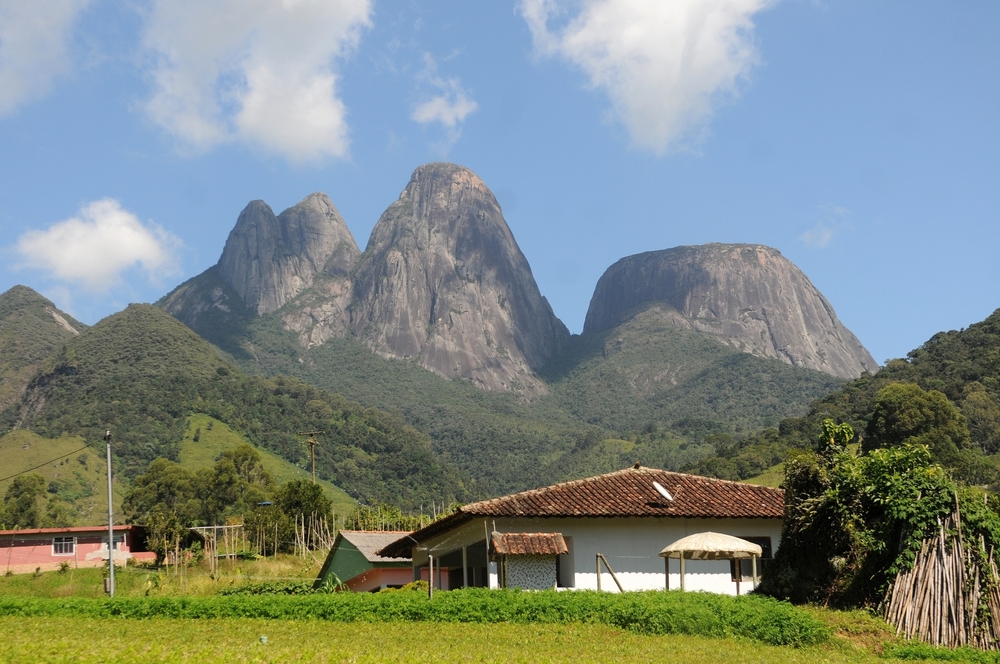
Culture and Society
Nova Friburgo’s culture blends Swiss heritage with Brazilian traditions. This mix shapes the city’s festivals, arts, and food.
Festivals and Events
Nova Friburgo hosts many lively events throughout the year. The Swiss Festival is a major celebration. It honors the city’s Swiss roots with music, dance, and food.
The Winter Festival draws tourists in July. It features warm clothes and hot drinks. Local crafts and food are on display.
Carnival is also big in Nova Friburgo. The city has its own samba schools and street parties. These blend Brazilian and European styles.
Arts and Music
Nova Friburgo has a rich arts scene. The city is home to many theaters and galleries. Local artists often show their work in these spaces.
Music is important in Nova Friburgo. The city has several music schools. These teach both classical and popular styles.
The Nova Friburgo Symphony Orchestra performs regularly. It plays both Brazilian and European classical music.
Culinary Traditions
Nova Friburgo’s food mixes Swiss and Brazilian flavors. Cheese production is a big part of the local economy. Many farms make Swiss-style cheeses.
Brazilian dishes are also popular. Feijoada, a bean and meat stew, is common. Local restaurants often serve it on weekends.
The city is known for its craft beers. Many breweries use Swiss techniques to make unique Brazilian beers.
Desserts in Nova Friburgo often have a Swiss touch. Chocolate shops and bakeries sell Swiss-inspired treats. These blend well with Brazilian sweets like brigadeiros.
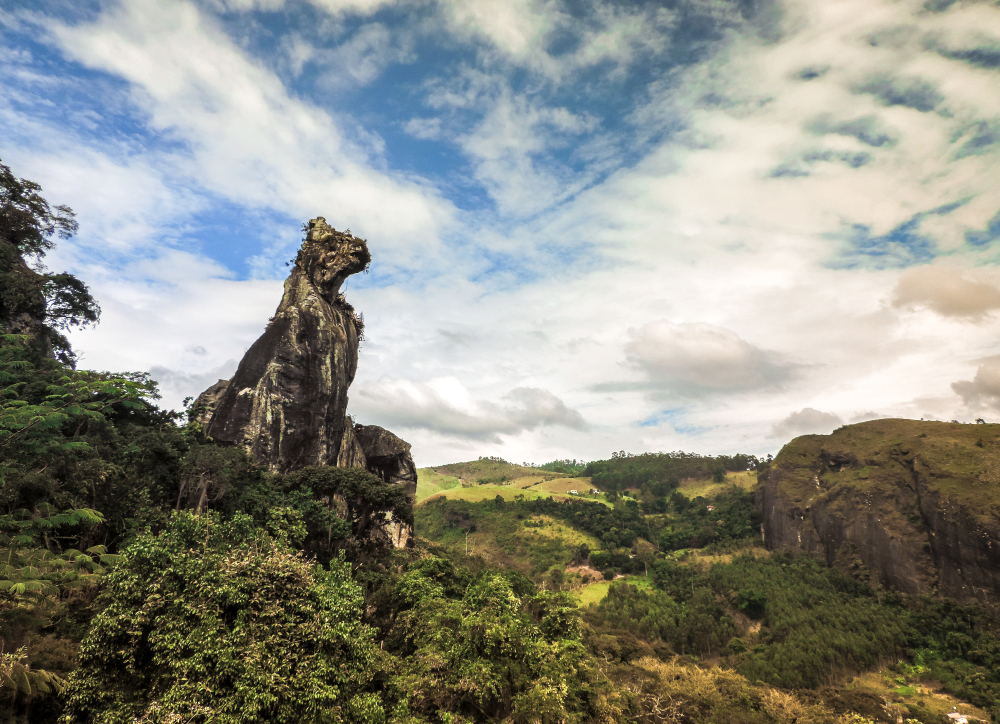
Tourism
Nova Friburgo attracts visitors with its natural beauty, rich history, and comfortable amenities. The city offers a mix of outdoor adventures, cultural experiences, and relaxing stays.
Natural Attractions
Nova Friburgo boasts stunning natural scenery. The city sits in a valley surrounded by mountains, creating a picturesque landscape.
Hiking trails wind through the nearby mountains, offering breathtaking views. Mirante do Inferno is a popular spot for trekking and taking in panoramic vistas.
Waterfalls dot the area, providing refreshing swimming spots on warm days. The lush Atlantic Forest surrounds the city, home to diverse plant and animal species.
Visitors can enjoy outdoor activities year-round. The climate is mild, with temperatures ranging from 10°C to 30°C depending on the season.
Historical Sites
Nova Friburgo has a rich history as a Swiss settlement in Brazil. This heritage is visible in the city’s architecture and cultural sites.
The Stone Bridge is a historic landmark that showcases the city’s past. Visitors can walk across the bridge and admire its unique stone construction.
Nova Friburgo’s downtown area features charming colonial buildings. Many have been preserved and now house shops, restaurants, and museums.
The Nova Friburgo Country Club, founded in 1911, offers a glimpse into the city’s social history. Its grounds and buildings reflect the European influence on local culture.
Accommodation and Dining
Nova Friburgo provides a range of lodging options to suit different budgets and preferences. Visitors can choose from cozy bed and breakfasts, boutique hotels, or larger resorts.
Many accommodations offer beautiful views of the surrounding mountains. Some feature on-site spas or outdoor pools for relaxation.
The city’s dining scene blends Brazilian and European flavors. Local restaurants serve traditional Swiss-inspired dishes alongside Brazilian favorites.
Specialty shops offer regional products like cheese, chocolate, and wine. Chateau Vinhos is a popular spot for wine enthusiasts to explore local varieties.
Cafes and bakeries dot the city, serving fresh pastries and strong Brazilian coffee. These make ideal spots for a leisurely breakfast or afternoon snack.
Infrastructure
Nova Friburgo’s infrastructure supports its urban and rural areas. The city has invested in key systems to serve residents and visitors.
Transportation Network
Nova Friburgo has a mix of roads and public transit options. The main highway, RJ-116, connects the city to Rio de Janeiro and other towns. Local buses run frequent routes within the city and to nearby areas.
Taxis and ride-sharing services are also available. For those on foot, the city center has sidewalks and pedestrian zones.
Nova Friburgo does not have its own airport. The closest major airport is in Rio de Janeiro, about 136 km away.
Utilities and Services
The city provides basic utilities to most areas. This includes water, sewage, and electricity. Waterfalls near Nova Friburgohelp supply clean water.
Internet and cell phone coverage are widely available in urban zones. Some rural areas may have limited access.
Nova Friburgo has several hospitals and clinics. These serve both locals and tourists. The city also maintains parks and public spaces for recreation.
Waste management services collect trash and recycling on a regular schedule. The local government works to keep streets and public areas clean.
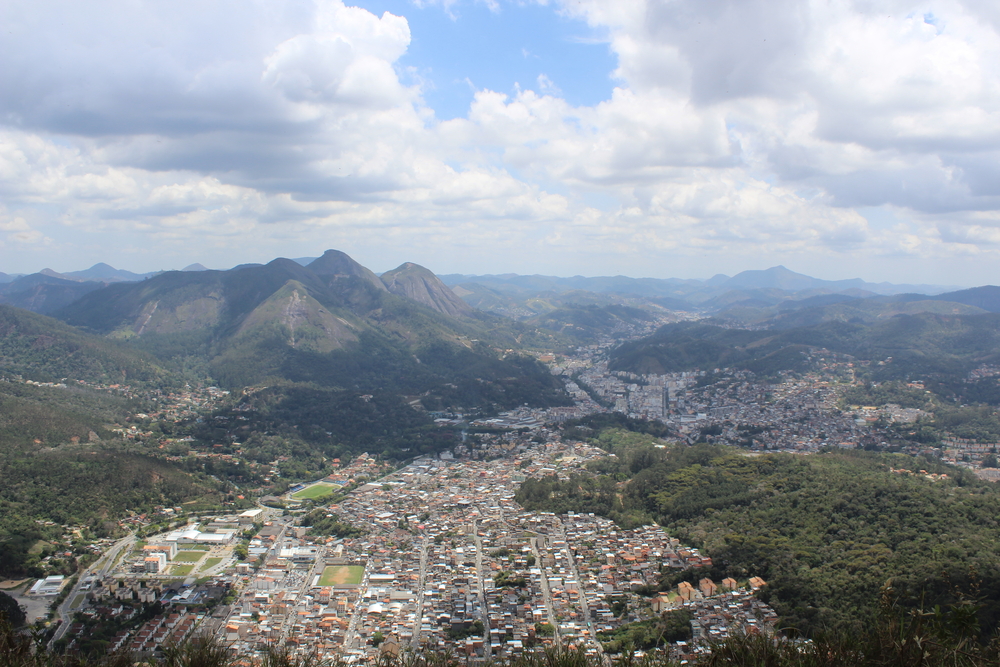
Environmental Issues
Nova Friburgo faces significant environmental challenges. The city grapples with deforestation, landslides, and pollution. These issues impact both the natural landscape and urban areas.
Conservation Efforts
Nova Friburgo is located in the Atlantic Forest region, a biodiversity hotspot. The city has taken steps to protect its natural resources. Local laws promote sustainable development and environmental preservation.
The municipality created a framework for sustainability. This approach aims to balance economic growth with nature conservation. Nova Friburgo’s efforts serve as an example for other cities.
Reforestation projects help restore damaged areas. These initiatives also reduce the risk of landslides, a major concern in the region.
Pollution and Waste Management
Nova Friburgo struggles with pollution and waste management issues. The city’s rapid growth has led to increased waste production. Proper disposal and treatment of this waste pose ongoing challenges.
Water pollution affects local rivers and streams. This impacts both the environment and public health. The city works to improve its sewage treatment systems to address this problem.
Air quality is another concern, especially in urban areas. Vehicle emissions and industrial activities contribute to air pollution. The city encourages the use of cleaner transportation options to reduce emissions.
Recycling programs exist but need expansion. Educating residents about proper waste sorting and recycling remains a priority for local authorities.
Frequently Asked Questions
Nova Friburgo offers visitors a range of attractions, accommodations, and cultural experiences. The city’s history and influences shape its unique character and appeal.
What are the top attractions to visit in Nova Friburgo?
Nova Friburgo boasts several notable attractions. The Stone Bridge is a historic landmark that offers scenic views of the surrounding area and river.
Visitors can also explore the Capela Nossa Senhora de Fatima, a beautiful church in the city. The town’s rich history and charming atmosphere make it an interesting place to wander and discover.
What is the current population of Nova Friburgo?
Nova Friburgo has a population of approximately 190,000 residents. The city is located in the mountainous region of Rio de Janeiro state, about 136 km from the state capital.
What accommodation options are available in Nova Friburgo?
Nova Friburgo offers a variety of lodging choices for visitors. Hotels like Hotel Bucsky provide comfortable stays for tourists.
Budget-conscious travelers may find better deals by visiting between September and November when hotel prices are generally lower. The city caters to different preferences and budgets.
Are there any beaches close to Nova Friburgo?
Nova Friburgo is located in a mountainous region, not near the coast. The closest beaches are about 2-3 hours away by car, near Rio de Janeiro city or along the Costa do Sol.
Visitors looking for water activities can enjoy the city’s rivers and natural pools instead of ocean beaches.
What are the historical influences on Nova Friburgo’s culture?
Nova Friburgo has strong Swiss and German influences. The city was founded by Swiss settlers in the 19th century, which is reflected in its name, meaning “New Fribourg” in Portuguese.
German immigrants also contributed to the city’s development and culture. These European influences are visible in the local architecture, cuisine, and some cultural traditions.
Which regions in Brazil have a notable Lebanese community presence?
While Nova Friburgo is not specifically known for a large Lebanese community, many Brazilian cities have significant Lebanese populations. São Paulo, Rio de Janeiro, and Foz do Iguaçu are among the cities with notable Lebanese-Brazilian communities.
These communities have contributed to Brazil’s cultural diversity, particularly in areas of cuisine and business.

